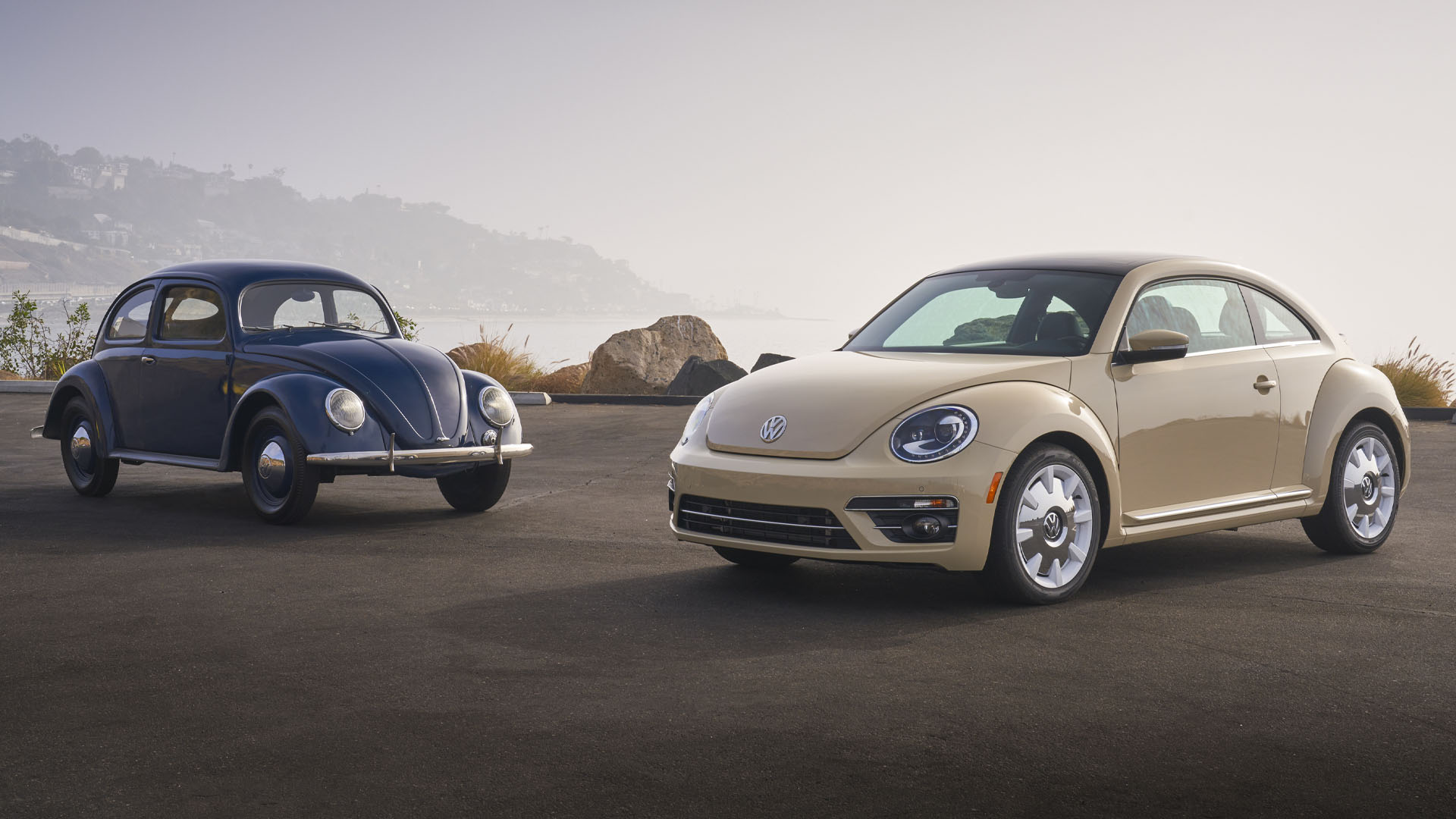

Despite being one of the world’s largest automakers, Volkswagen often says and does things that seem unfocused and unusual. In the United States, this is especially true—I’m looking at you, Arteon—and now that the company has a chance to reinvent much of its lineup thanks to electrification, its CEO has stated an electric Beetle isn’t happening.
In an interview with Autocar, the company’s chief executive Thomas Schäfer said that “traditional [and] successful” models like the Golf and Tiguan would no doubt be electrified, but the company has to look towards the future. He addressed the retro-styled ID Buzz as the one exception, but claims the Beetle would be a “dead end.”
“I wouldn’t say with 100% [certainty]. But from where I stand now, I wouldn’t consider it,” Schäfer told the publication. “It’s the same as Scirocco: it had its day, then there was a new model based on a reinterpretation. To do that again? I don’t think so. And going forward with balancing all these technologies and the cost that is associated with it, you’ve got to invest money in the best possible place.”
In his mind, the Beetle was effectively replaced by the Golf. That would make sense, if not for the fact that VW sold the Golf alongside a pair of new-generation Beetles for over 20 years.

The real answer probably has more to do with the current state of electrification, the trend toward larger cars, and yes, internal VW squabbling. The brand’s first EV in the U.S. is the ID.4 crossover, which has received lukewarm reviews despite a competitive price and range. In other words, the actual car isn’t very good despite having good specs on paper. We also know that the German brand has had considerable trouble developing its smallest EV, the ID.2. Apparently it’s basically an electric Golf now after the company decided a potential ID.2’s appeal was limited. It has even admitted its latest round of button-less interiors hurt the brand.
The result is an environment where an electric Beetle, even if the company wanted to build one, would potentially be uncompetitive. If developed now, the car would almost certainly have a short range and an interior that wasn’t up to snuff. It would also probably underperform in an SUV-addicted market like the United States. In short, VW would be building a car that wouldn’t look very good on paper, and likely wouldn’t be anything special when it left the drawing board.
It also must be said that short-wheelbase EVs with reasonable ranges are generally a non-starter right now, independent of VW’s own capabilities. Because of the energy density of current lithium-ion batteries, automakers utilizing “skateboard” platforms have to pick between having a long, slender battery pack, or a shorter, fatter one. Almost all of them pick the former and even then the cars often look strange. In a vehicle with two-door proportions like the Beetle, a modular skateboard platform would probably have goofy proportions. The new Chevy Equinox EV highlights this well. The base model has 19-inch wheels in an attempt to visually disguise its true length, which is similar to the current gasoline-powered Chevy Blazer.

Improvements in battery technology and power electronics will eventually make the possibility of an electric Beetle impossible to ignore, though. Once an EV with a small pack can easily achieve 300 miles of range, the automaker would be silly not to build a car called the Beetle and sell it in the United States.
When that technology will arrive for VW in particular has yet to be seen. If solid-state batteries are what it’s waiting for, its partner in that effort, QuantumScape, is arguably behind its competition. The company has delivered prototype cells to OEMs, but other automakers like BMW are already setting up early production lines with its partner, Solid Power, to produce the batteries in Germany. Likewise, Toyota is already testing vehicles powered by SSBs, which due to their reduced cooling requirements and improved energy density can offer more kilowatt-hours for a given weight and volume with improved stability.
If SSBs are what it takes for a new Beetle, we’re going to be waiting a while.
Got a tip or question for the author? Contact them directly: peter@thedrive.com